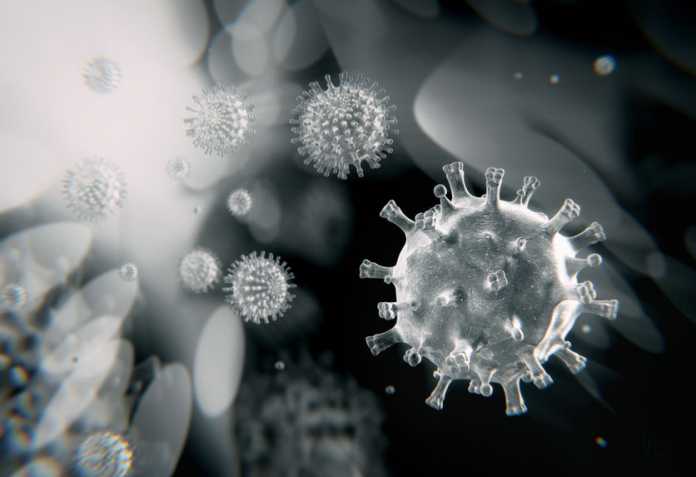By H. Sterling Burnett
My daily Google search for “Climate Change,” turned up a whopper of a story published in Phys.org indicating a warmer world due to climate change could lead to a massive loss of lives due to resurgent infectious diseases from the past.
In the story, “How climate change could expose new epidemics,” the author writes,
“Climate change… is … emerging as a driver of infectious disease, whether by expanding the footprint of malaria- and dengue-carrying mosquitos, or defrosting prehistoric pathogens from the Siberian permafrost.”
Phys.org warns the frozen tundra could thaw due to climate change unleashing microbes and bacteria of diseases long frozen in the soil, citing, in particular, anthrax, the Spanish flu, or small pox. Yet anthrax has never left us. Anthrax is rare in humans, with only approximately 2,000 cases annually, and extremely difficult to pass from an infected person to an uninfected one. In instances wherein a person is infected with anthrax, if proper protocols are followed, its spread is largely preventable and, with early treatment with anti-biotics and recently developed treatment regimes, chances for survival have improved dramatically in recent decades. There is no reason for thinking climate change with cause an explosion of anthrax infections.
Concerning dormant strains of the flu or even small pox, the article itself quotes a researcher in the field, Vladimir Romanovsky, a professor of geophysics at the University of Alaska in Fairbanks, who wrote in an article published earlier in 2020, such diseases “have probably been inactivated.”
The article also admits, should small pox be contained and still active in the permafrost, a vaccine is available to prevent a pandemic from arising if the soil thaws unleashing the virus. In short, there is little reason to fear if climate change does cause some of the permafrost to melt is will unleash untreatable plagues upon society.
Nor is climate change likely to contribute to an increase in the spread of infectious diseases like Dengue fever, malaria or the zika virus. Voluminous amounts of research indicates, if anything, modestly warmer world would result in fewer deaths from disease rather that more. In an article published in the Southern Medical Journal in 2004, W. R. Keatinge and G. C. Donaldson noted, “Cold-related deaths are far more numerous than heat-related deaths in the United States, Europe, and almost all countries outside the tropics, and almost all of them are due to common illnesses that are increased by cold.”
More recently in a study published in the Lancet in 2015, researchers examined health data from 384 locations in 13 countries, accounting for more than 74 million deaths, and found cold weather, directly or indirectly, killed 1,700 perecent more people than warm or hot weather.
Indeed, history shows pandemics like the bubonic plague and small pox have thrived and spread during colder geologic periods, like the little ice age, rather than warmer periods.
Concerning vector borne diseases—diseases spread from insect carriers, like mosquitoes—to humans, the data shows they have decreased during the recent modest warming, and, if proper preventative steps are taken, they should continue to decline precipitously in the future regardless of the climate.
The vast body of scientific literature detailed in Chapter Four of Climate Change Reconsidered II: Fossil Fuels, including studies from Africa, to England and Wales, to North and South America, to Thailand and beyond find no link between human climate change and the spread of malaria, Dengue fever, West Nile virus, and other vector-borne diseases. For instance in a 2010 study in Nature, Gething et al.:
“…compared historical and contemporary maps of the range and incidence of malaria and found endemic/stable malaria is likely to have covered 58% of the world’s land surface around 1900 but only 30% by 2007. They report, ‘even more marked has been the decrease in prevalence within this greatly reduced range, with endemicity falling by one or more classes in over two-thirds of the current range of stable transmission.’ They write, ‘widespread claims that rising mean temperatures have already led to increases in worldwide malaria morbidity and mortality are largely at odds with observed decreasing global trends in both its endemicity and geographic extent.’
And vector-borne disease expert Paul Reiter, a professor of medical entomology at the Pasteur Institute in Paris, France and a member of the World Health Organization Expert Advisory Committee on Vector Biology and Control, has written extensively on the transmission of vector-borne diseases stating any links between climate change are not supported by evidence.
For instance, in a 2008 article in the Malaria Journal, Reiter wrote:
Simplistic reasoning on the future prevalence of malaria is ill-founded; malaria is not limited by climate in most temperate regions, nor in the tropics, and in nearly all cases, ‘new’ malaria at high altitudes is well below the maximum altitudinal limits for transmission, [continuing] future changes in climate may alter the prevalence and incidence of the disease, but obsessive emphasis on ‘global warming’ as a dominant parameter is indefensible; the principal determinants are linked to ecological and societal change, politics and economics.
The COVID-19 pandemic is scary enough without journals like Phys.org hyping unwarranted fears of a climate change/infection disease link. Especially when they have no evidence to back up their claims.


















[…] Read more at Climate Realism […]
[…] Read more at Climate Realism […]